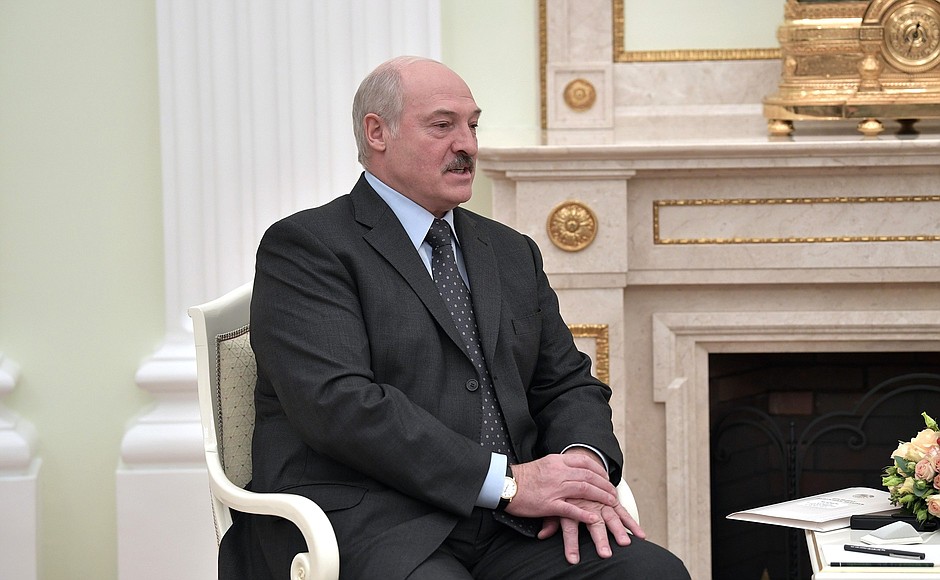Workers from state factories join mass protests against Belarus president
Workers from state-run industrial plants joined tens of thousands of people on a fifth day of protests against Belarusian President Alexander Lukashenko, despite a violent crackdown that has prompted the West to consider new sanctions.

- Country:
- Belarus
Workers from state-run industrial plants joined tens of thousands of people on a fifth day of protests against Belarusian President Alexander Lukashenko, despite a violent crackdown that has prompted the West to consider new sanctions. Protesters formed human chains and marched in Minsk, joined by at least two television presenters from the tightly-controlled state media who resigned in protest at the violence that followed Lukashenko's contested re-election.
A former Soviet collective farm manager, Lukashenko is grappling to contain the biggest challenge in years to his rule of the country seen by neighbouring Russia as a strategic buffer against NATO and the European Union. The protesters accuse Lukashenko of rigging last Sunday's presidential election to win a sixth term. The president, alleging a foreign-backed plot to destabilise the country, has dismissed the demonstrators as criminals and unemployed.
The authorities began releasing some of the thousands of protesters who were detained this week. Some of those freed from a detention centre in Minsk had bruises and described being tightly packed inside cells and complained of mistreatment, including beatings. A spokeswoman for the interior ministry declined immediate comment.
RUSSIA ALLEGES MEDDLING Thursday's protesters were joined by workers from some state-run industrial plants that are the pride of Lukashenko's Soviet-style economic model, including the Minsk Automobile Plant (MAZ) that makes trucks and buses.
In Minsk, ambassadors from EU countries laid flowers at the site where one protester died, as a crowd cheered and chanted. Lukashenko has sought better relations with the West amid strained relations with traditional ally Russia.
The EU partially lifted sanctions, imposed over Lukashenko's human rights record, in 2016, but could introduce new measures as early as this month. Germany called on the EU to put pressure on Lukashenko. Russia, which has nudged Lukashenko into accepting closer political and economic ties, expressed concern over what it depicted as attempts by external forces to destabilise Belarus.
"We note unprecedented pressure that is being exerted by individual foreign partners on the Belarusian authorities," Russian Foreign Ministry spokeswoman Maria Zakharova said. "We can see clear attempts of outside meddling in the internal affairs of a sovereign state to create a rift in society and destabilise the situation," she told reporters.
The 65-year-old Lukashenko has ruled for more than a quarter of a century but faces increasing anger over his handling of the coronavirus pandemic - which he dismissed as a "psychosis" - a sluggish economy and human rights. Anna Krasulina, spokeswoman for opposition leader Sviatlana Tsikhanouskaya, who fled to neighbouring Lithuania earlier this week saying she feared for the safety of her children, told Reuters she expected Tsikhanouskaya to release a video message later on Thursday.
Michelle Bachelet, the U.N. human rights chief, has condemned the mass detentions "including bystanders, as well as minors, suggesting a trend of massive arrests in clear violation of international human rights standards". People outside the Okrestina detention centre, some in tears, waited in the hope of gleaning news of friends and relatives inside. Police and soldiers with machine guns drove them away when they got too close.
Sergei, one of the freed detainees, said there had been 28 people in a cell that would normally contain five. Prisoners took turns to sleep, he said, and were given a single loaf of bread to share out over two days. "They did not beat me in the cell, they took me out of the cell and beat me there," said Sergei, who declined to give his last name.
Reuters could not independently verify his account. Vartan Grigoryan, another freed detainee, had injuries on his face. "I was seized, beaten, taken to prison and beaten again," he told Reuters. "After that, I felt bad and was taken to the hospital by ambulance."
(This story has not been edited by Devdiscourse staff and is auto-generated from a syndicated feed.)
ALSO READ
Moscow summons Slovenian ambassador over expulsion of Russian diplomat, says TASS
Moldovan opposition announces new election bloc at Moscow event
Russian foreign ministry says US trying to drive wedge between Moscow and Beijing
Russian attack on NATO would end in defeat for Moscow, Polish foreign minister says, but NATO must increase its defences, reports AP.
Moscow City Tourism Committee organizes conference for Indian MICE market stakeholders










